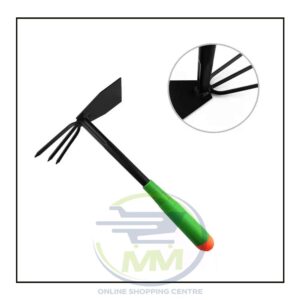E-commerce has rapidly transformed the retail landscape worldwide, and Pakistan is no exception. With the growth of internet usage and smartphone penetration, online shopping is becoming increasingly popular in the country.
According to a report by the Pakistan Telecommunication Authority, the number of internet users in Pakistan has crossed 100 million, and this number is expected to grow further in the coming years.
At Meharmall, we believe that e-commerce has the potential to revolutionize the retail industry in Pakistan, and we are committed to providing our customers with a safe, secure, and hassle-free online shopping experience.
In this article, we will discuss the benefits and challenges of e-commerce in Pakistan.
Benefits of E-Commerce in Pakistan
Convenience and Accessibility
One of the main benefits of e-commerce is the convenience it offers to customers. With online shopping, customers can shop from the comfort of their own homes, without having to visit physical stores.
This is especially beneficial for those who live in remote areas or have mobility issues. Moreover, e-commerce allows customers to shop 24/7, which means they can place orders at any time of the day or night.
Greater Variety and Selection
E-commerce also offers customers a greater variety and selection of products. Online stores can stock a wider range of products than physical stores, and customers can easily compare prices and features to find the best deals.
This is particularly important in a country like Pakistan, where certain products may not be available in all areas.
Competitive Pricing
E-commerce has made shopping more affordable for customers by creating a more competitive pricing environment. Online stores can offer lower prices than traditional stores due to lower overhead costs. These benefits customizing them to save money on their purchases.
Challenges of E-Commerce in Pakistan
Lack of Trust and Security Concerns
One of the main challenges of e-commerce in Pakistan is the lack of trust and security concerns. Many customers are hesitant to shop online due to the fear of fraud and identity theft.
To overcome this challenge, online stores need to invest in secure payment systems, data encryption, and other security measures to protect their customers’ personal and financial information.

Infrastructure and Logistics
Another challenge of e-commerce in Pakistan is the lack of proper infrastructure and logistics. Delivery and shipping can be a major challenge in a country like Pakistan, where roads and transportation systems are not always reliable.
Online stores need to develop efficient logistics and delivery systems to ensure that products are delivered to customers in a timely and secure manner.

Payment Options
In Pakistan, cash-on-delivery (COD) is still the most popular payment method for online purchases. However, this can be a challenge for online stores as it requires them to maintain a cash flow to ensure that they can pay for the products they are selling.
To overcome this challenge, online stores need to provide customers with a variety of payment options, including credit cards, mobile payments, and online banking.
Despite the challenges, e-commerce is rapidly gaining popularity in Pakistan. The benefits of online shopping, including convenience, accessibility, and competitive pricing, are too significant to ignore.
Online stores like Meharmall are working hard to overcome the challenges of e-commerce in Pakistan by investing in secure payment systems, efficient logistics, and a variety of payment options.
We believe that e-commerce has the potential to transform the retail industry in Pakistan, and we are committed to being at the forefront of this revolution.





